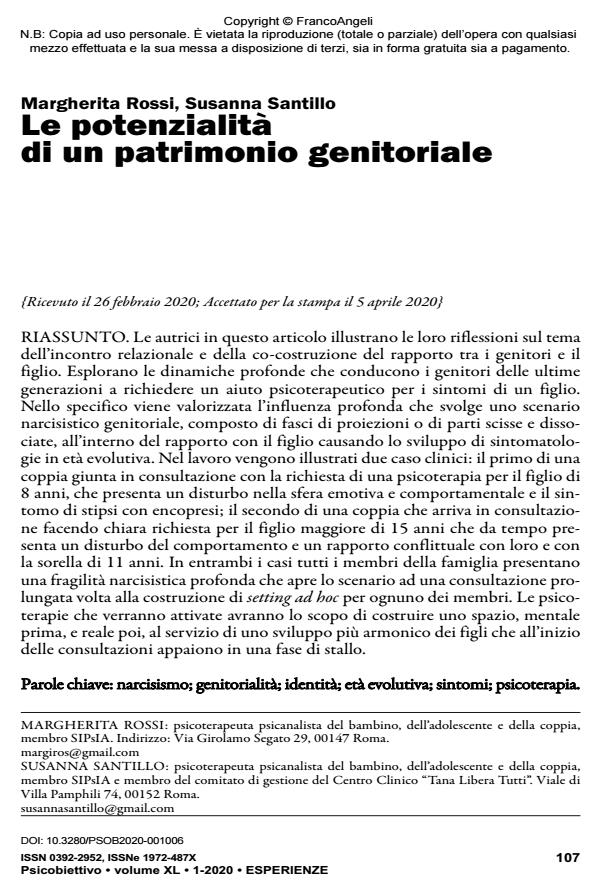The potential of parental heritage
Journal title PSICOBIETTIVO
Author/s Margherita Rossi, Susanna Santillo
Publishing Year 2020 Issue 2020/1
Language Italian Pages 12 P. 107-118 File size 137 KB
DOI 10.3280/PSOB2020-001006
DOI is like a bar code for intellectual property: to have more infomation
click here
Below, you can see the article first page
If you want to buy this article in PDF format, you can do it, following the instructions to buy download credits

FrancoAngeli is member of Publishers International Linking Association, Inc (PILA), a not-for-profit association which run the CrossRef service enabling links to and from online scholarly content.
In this article the authors present their considerations on the relationship between parents and child and its evolvement. They explore the deep dynamics that lead the parents of the latest generation to seek psychotherapist support for the symptoms of their child. In particular, the deep effect of a parents’ narcissistic scenario is evaluated. Parents’ narcissism is composed by projections and dissociations in the relationship with the child, leading to a symptomatology during the developmental phase of the child. In this article the authors present two clinical cases. The first case explores the dynamics of a couple who seeks psychotherapy support for their eight-year-old son. The child shows emotional and behavioural discomfort in conjunction with constipation and encopresis. The second case, instead, deals with a request from parents for a psychological support for their eldest son (fifteen years old), who shows upset behaviour as well as a conflictual relationship with his parents and younger sister (eleven years old). In both cases the family members appear with a deep narcissistic vulnerability, which paves the way to a long-term consultation to obtain the construction of a dedicated setting for each of them. The psychotherapy approach put in place for these cases has the purpose of building a space, firstly mental and then real, to support and promote a more balanced development of the teenagers who initially appear in a blocked and suspended position.
Keywords: Narcissism; parenthood; identity; developmental phase; symptoms; psychotherapy.
Margherita Rossi, Susanna Santillo, Le potenzialità di un patrimonio genitoriale in "PSICOBIETTIVO" 1/2020, pp 107-118, DOI: 10.3280/PSOB2020-001006